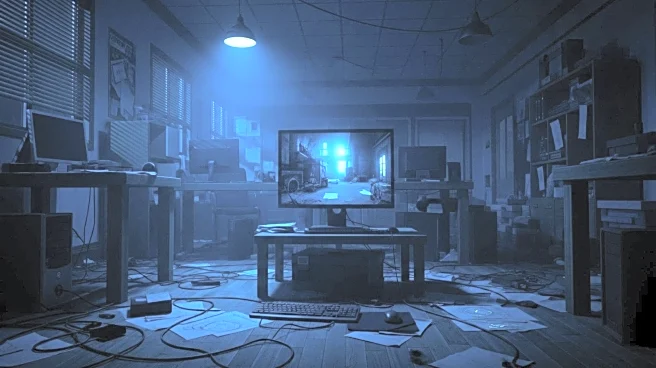What is the story about?
What's Happening?
Black Widow Games, known for its popular Half-Life mod 'They Hunger,' embarked on a new project titled 'They Hunger: Lost Souls' between 2005 and 2008. This sequel was intended to be a commercial venture, utilizing the Source engine from Half-Life 2. Set in the 1960s in north-eastern Europe, the game was to follow a tourist caught in a zombie outbreak. Despite being 75% complete and entering alpha by 2006, the project was never finished. The reasons for its abandonment remain unclear, with speculation suggesting that the lead designer, Neil Manke, fell ill, leading to the project's halt. Unfinished alphas of the game have surfaced, offering a glimpse into what could have been.
Why It's Important?
The unfinished status of 'They Hunger: Lost Souls' highlights the challenges faced by independent game developers, particularly when transitioning from modding to commercial projects. The game's development was highly anticipated due to Black Widow Games' reputation in the modding community and the innovative design choices planned for the game. The project's failure underscores the difficulties in managing international teams and the impact of unforeseen personal circumstances on creative projects. The gaming community's interest in the unfinished alphas reflects a continued fascination with the potential of the game and the legacy of its predecessor.
What's Next?
While the project remains officially unfinished, there is a possibility that more complete builds of 'They Hunger: Lost Souls' exist, as suggested by communications from Neil Manke. However, without official confirmation or release, the game is likely to remain incomplete. The gaming community may continue to explore and discuss the available alphas, keeping the project's memory alive. Any future developments would depend on the availability of more complete game files and the willingness of former team members to revisit the project.
Beyond the Headlines
The story of 'They Hunger: Lost Souls' raises questions about the sustainability of independent game development and the importance of project management in creative industries. It also highlights the role of community speculation and interest in keeping unfinished projects relevant. The ethical considerations of releasing incomplete work and the potential for community-driven completion efforts are also noteworthy aspects of this story.















